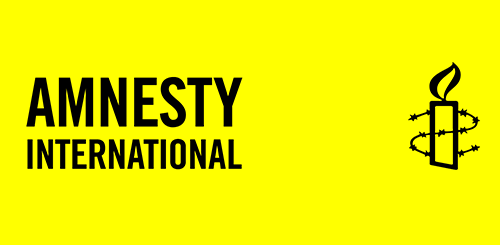State officials were complicit in recent mob attacks against the Ahmadiyya religious minority in East Lombok, West Nusa Tenggara, that left six homes destroyed and forced dozens to flee their villages, Amnesty International Indonesia said today.
The finding comes after the organization interviewed Ahmadis living in the affected neighborhoods of Montongtangi and Gerengeng. They described how state officials including police tried to force them to “return to the true teaching of Islam”, warning they would otherwise be killed. The Ahmadiyya are a religious group who consider themselves Muslims. However, Indonesian law and majority of Muslims in Indonesia do not recognize them as part of Islam.
“This is a clear example of the state being party to discrimination and violence against a religious minority. For refusing to give up their beliefs, people saw their homes destroyed and their possessions looted,” said Amnesty International Indonesia executive director Usman Hamid.
“The Indonesian government must ensure that the incidents are investigated and perpetrators – including any officials involved – brought to justice. Concrete steps, including changes to laws, decrees, policies and practices, must be taken to protect minority communities like the Ahmadiyya from discrimination, violence and forced evictions. People must be allowed to practise their faith free from discrimination and fear.”
The interviews conducted by Amnesty International Indonesia reveal that, before the attacks in Gereneng village on 19 and 20 May, district officials, police officers, military personnel and intelligence officers tried to forcibly “convert” six Ahmadis living in the village of Montongtangi.
This particular round of persecutions of the Ahmadi population began on 6 May, after a meeting of community leaders, officials and clerics on the invitation of the village head decided Ahmadiyya was a “deviant” belief and that Ahmadis must be expelled from East Lombok. The head of the village ordered sub-village leaders to launch a manhunt on suspected Ahmadis.
Houses were searched the following day, with Ahamadis told they would be brought to local clerics and “purified.” On 8 May, clerics visited an Ahmadi man’s house, which he shared with his wife and parents-in-law, who were not Ahmadis. The clerics spoke to the parents-in-law about what they referred to as “the deviance” of Ahmadiyyah, and warned the man he would be forced to divorce his wife if he did not give up his beliefs.
Amnesty International was told that on 11 May the man was summoned along with five other Ahmadis to a meeting with community leaders, clerics, the district head, police officers, military personnel and intelligence officers. There, the six people were told they must convert to Islam to prevent hundreds of local people from attacking them. Some locals trying to defend the Ahmadis were later attacked and intimidated by mobs.
One of the victims told Amnesty International that the village head said: “If you are really Ahmadis, Ahmadiyya is communist. If it is true that you are Ahmadis, then people, including clerics will come to purify you and mobs will come to attack you.”
After being forced to evacuate to a nearby police station to avoid the angry mob, a victim reported that the six men were told by the police they would be killed if they did not give up their beliefs. Unwilling to change their beliefs, they were left with no choice but to flee Montongtangi.
Those interviewed by Amnesty International reported that a police officer said: “People urge me to try you, you cannot go home, if you go home you will be killed.”
The incident in Montongtangi village apparently “inspired” people in Gereneng village to carry out a similar offensive against Ahmadis on 19 May, with mobs destroying six houses and forcing 24 Ahmadis to be evacuated to a nearby police station, including 10 children, two men and four women – of which one of them is pregnant.
A victim told Amnesty International that a state official visited them at the police station on the same day and warned them they must “convert to Islam,” and said to them: “Are you a Muslim? If yes, why you became Ahmadis? If you still claim yourselves to be Muslims then you have to give up you Ahmadiyya belief.”
A survivor of the attack living in Gereneng village told Amnesty International Indonesia that she and her father evacuated in their car to the house of a relative after receiving information that mobs would come to destroy the houses of Ahmadis in the village.
“I could only see from a distance my house being destroyed. Local people used bamboos and sticks to destroy the houses of Ahmadis in my villages. They also looted jewelry from our house.”
The local police, military commanders and district government officials in East Lombok District organized a mediation meeting and decided to relocate the Ahmadiyya members to a temporary shelter. The commander of the local police force has promised to begin an investigation into the attacks.
“Since local police were apparently involved not just in failing to prevent those clearly unlawful attacks and forced evictions but also facilitated them and attempted to force “conversion” upon the Ahmadiyya, the investigation should be carried out by an independent body, not by police. The right to freedom of thought, conscience and religion must be respected and protected for all people, of all faiths, and at all times,” said Usman Hamid.
Background
Members of the Ahmadiyya community have faced discrimination, intimidation and threats in various parts of Indonesia, not least because their teachings are viewed as “deviant” by the government through a joint ministerial decree called “SKB”.
Amnesty International is calling on the Indonesian authorities to ensure that any damage to property is repaired or compensated for, and that members of the Ahmadiyya community are allowed back to their homes and neighborhoods as soon as repairs are completed and that they are robustly protected from any further persecution, including direct violence and attempted “conversions”.
For further information, please contact Elizabeth Berton-Hunter, Media Relations 416-363-9933 ext 332 bberton-hunter@amnesty.ca






















